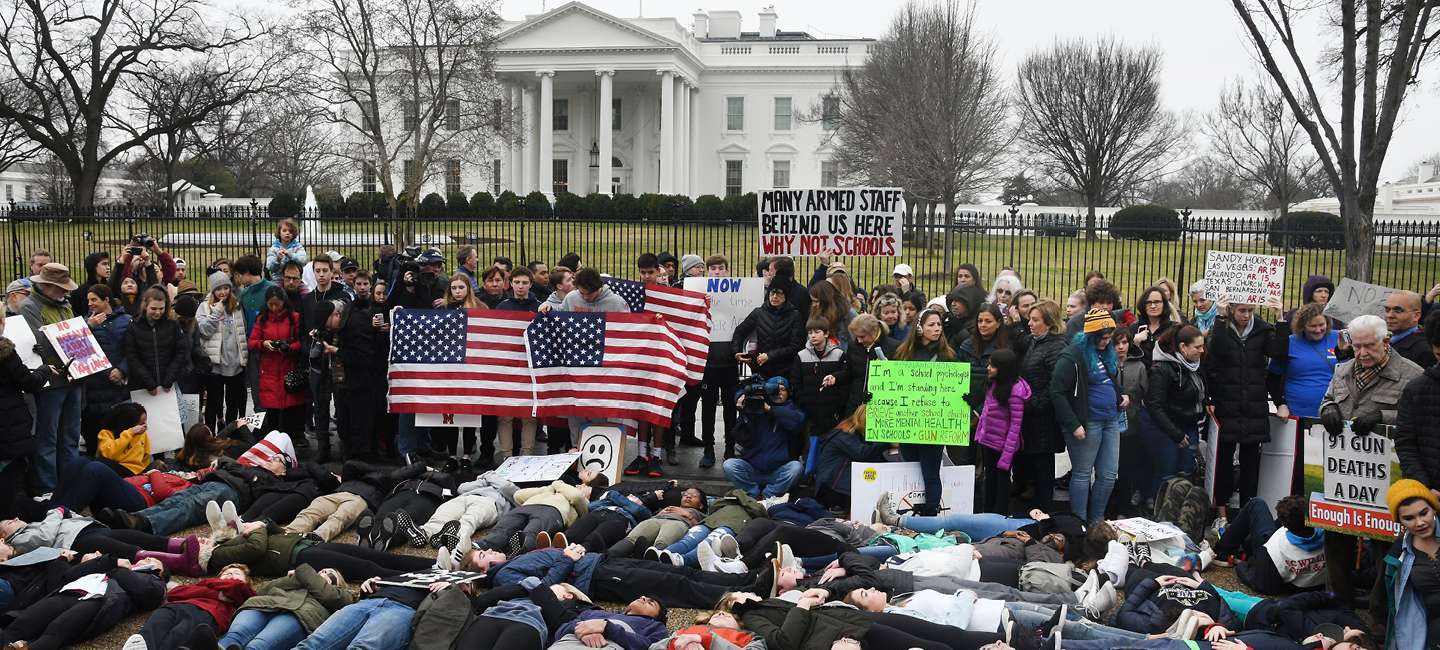This is life for the children of the mass shooting generation. They were born into a world reshaped by the 1999 attack at Columbine High School in Colorado that killed 13 people, and grew up practicing active shooter drills and huddling through lockdowns. They talked about threats and safety steps with their parents and teachers. With friends, they wondered whether it could happen at their own school, and who might do it.
Now, this generation is almost grown up. And when a gunman killed 17 people last week at Stoneman Douglas High, the first response of many of their classmates was not to grieve in silence, but to speak out. Their urgent voices—in television interviews, on social media, even from inside a locked school office as they hid from the gunman—are now rising in the national debate over gun violence in the aftermath of yet another school shooting.
On Monday, a group of teens staged a “lie-in” outside the White House, in Washington, D.C., calling for political action on gun control. The silent protest, which involved dozens of students lying on the ground as if they were corpses, was organized by a Facebook group called “Teens for Gun Reform.”
That protest came two days after students in Florida—including many from Stoneman Douglas—held a rally at the Broward County federal courthouse to speak about gun control. Emma González, a senior, pledged that her school would be the site of the nation’s last mass shooting. How could she know? Because, she said, she and her peers would take it upon themselves to “change the law.”
“The people in the government who are voted into power are lying to us,” she said. “And us kids seem to be the only ones who notice and are prepared to call B.S.”
“They say that tougher gun laws do not decrease gun violence—we call B.S.!” she continued as a chorus of supporters echoed her. “They say a good guy with a gun stops a bad guy with a gun—we call B.S.! They say guns are just tools like knives and are as dangerous as cars—we call B.S.! They say that no laws could have been able to prevent the hundreds of senseless tragedies that have occurred—we call B.S.! That us kids don’t know what we’re talking about, that we’re too young to understand how the government works—we call B.S.!” Video of González speaking quickly went viral.
Several students from Stoneman Douglas are already planning a “March for Our Lives” in Washington, D.C., on March 24 to demand stricter gun laws and action from lawmakers. (Separately, the Women’s March Network is calling on students, teachers, and school administrators to participate in a national school walkout at 10 a.m. on March 14. The walkout will last for 17 minutes—a minute for each of the 17 Stoneman Douglas victims.)
While many politicians after the shooting were focused on mental health and safety, some vocal students at Stoneman Douglas High showed no reluctance in drawing attention to gun control.
They called out politicians over Twitter, with one student telling Senator Marco Rubio, a Florida Republican, “YOU DON’T UNDERSTAND.” Shortly after the shooting, Cameron Kasky, a junior at the school, and a few friends started a “Never Again” campaign on Facebook that shared stories and perspectives from other students who survived the rampage.

